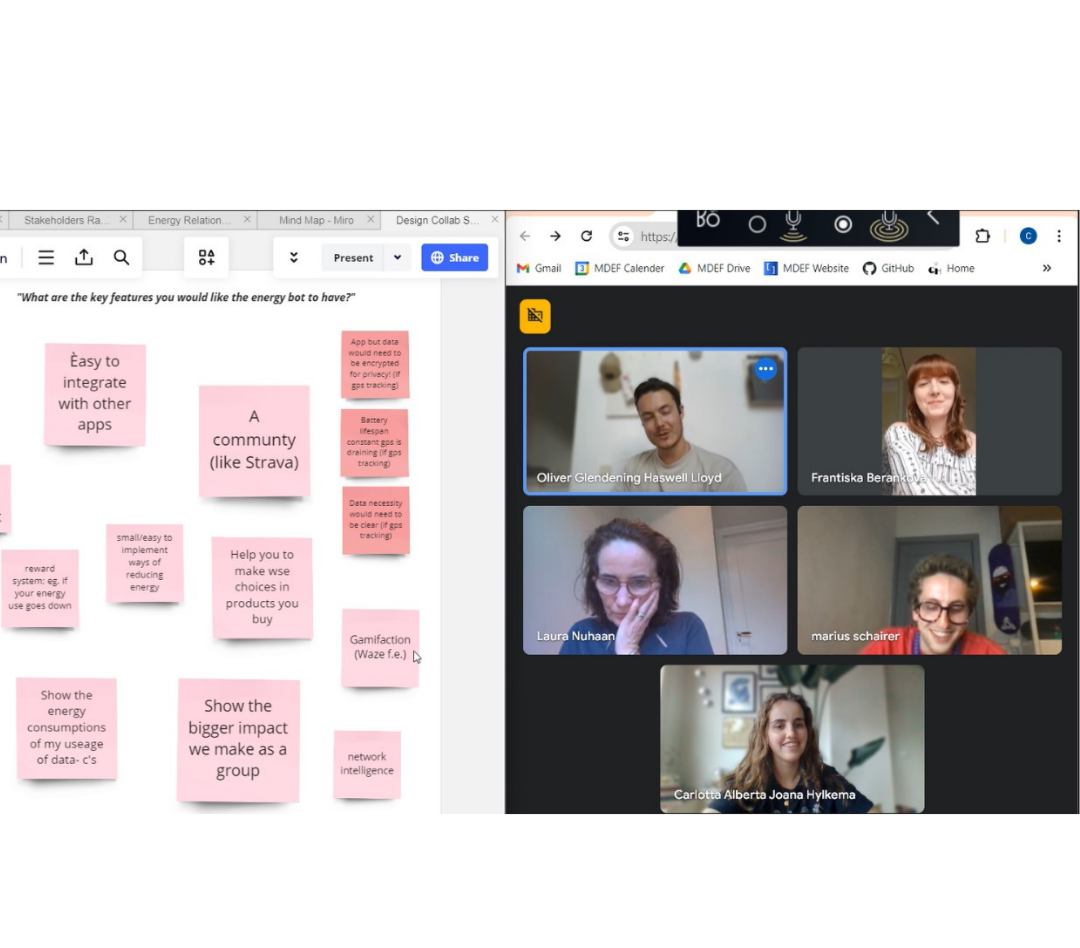
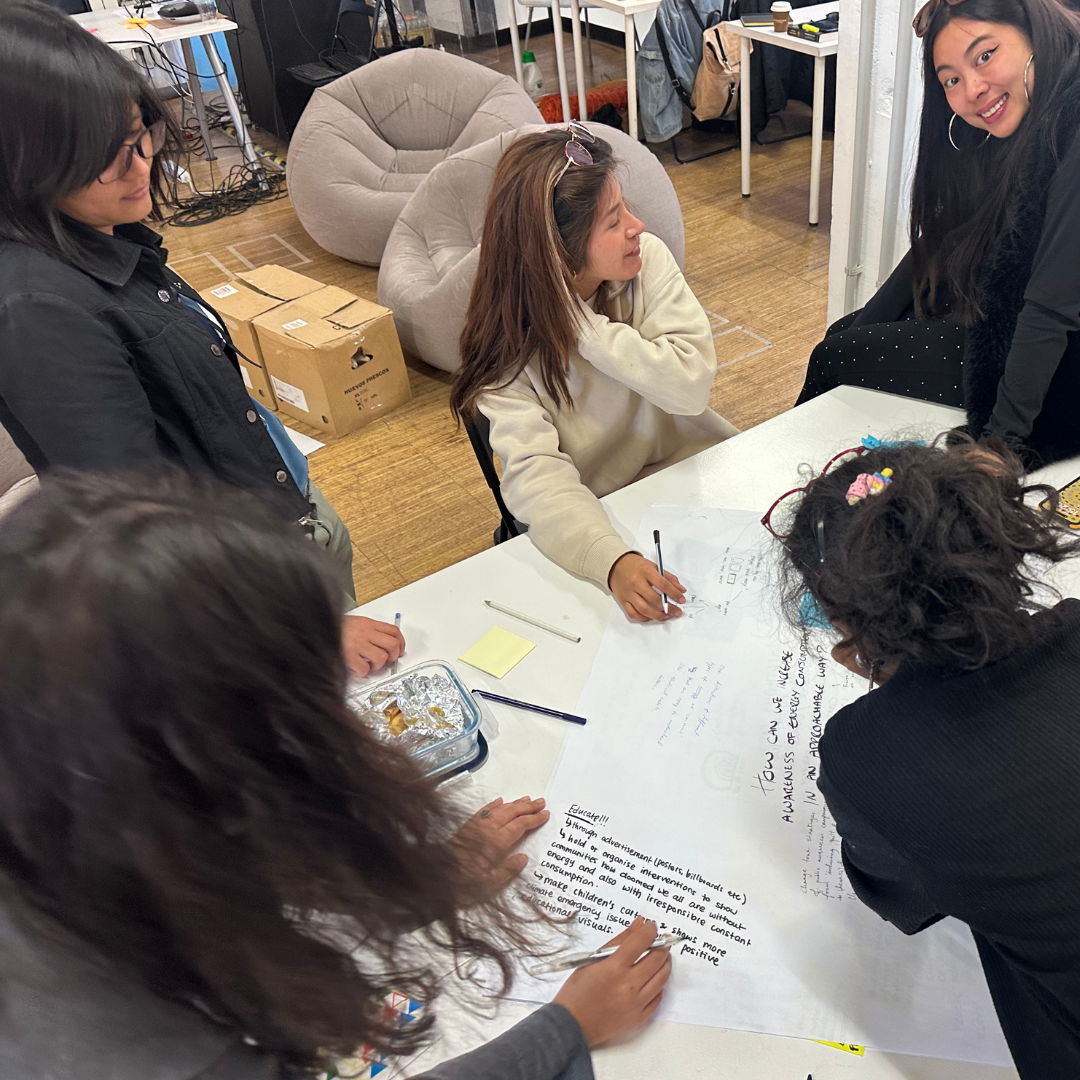
What Started It
WattWise originated from my enduring interest in environmental sustainability, a passion that began during my bachelor's degree. Initially, my focus was on food waste and its environmental impacts. I was curious about how different commodities are perceived, used, and the repercussions of their excessive consumption. This curiosity soon expanded into a broader exploration of energy consumption and its significant environmental impact.
What Was the Original Interest
My original interest lay in understanding food waste and its environmental implications. This exploration led me to consider how people view and use various commodities in their daily lives and the impact of these practices on the planet. As I delved deeper, my focus naturally shifted to energy consumption, a critical factor influencing environmental sustainability.
What Was the Problem We Were Looking Into
The core problem we sought to address was the growing energy consumption, particularly in developed countries, and its detrimental effects on the environment. Despite advancements in renewable energy, the public's understanding of energy use and its impact remained limited. This knowledge gap was a significant barrier to changing consumption habits. Additionally, the 2000 Watt Society’s goal is ambitious, aiming to reduce energy use in a way that doesn’t negatively impact day-to-day living. The challenge was to find practical methods to help people reduce their energy consumption while maintaining their standard of living. This involved looking into how energy is consumed in various aspects of life—home, transportation, and food—and identifying ways to make sustainable living easier and more appealing.
Partnering with Oliver
Early in the project, I partnered with Oliver, whose work on the 2000-watt society closely aligned with my interests. This society suggests that sustainable energy use can be achieved if everyone uses no more than 2000 watts per day. Oliver's practical approach to tracking energy usage complemented my focus on designing for habitual change, making our collaboration a natural fit.
What Were the Different Angles We Approached the Problem From
1. First-Person Tracking: We began by tracking our own energy usage to gain firsthand insights into the practical challenges and potential solutions.
2. Surveys and Community Engagement: We conducted surveys in the Netherlands, UK, and Spain to gather public perceptions on energy usage and interest in tracking devices.
3. Collaborative Design Sessions: Engaging with fellow students and designers provided diverse perspectives on energy consumption and tracking methods.


What Did We Discover
1. User Preferences: Simplicity and relatability in tracking methods were crucial. Users preferred straightforward comparisons, such as energy usage in terms of smartphone charges.
2. Privacy Concerns: Ensuring user comfort with data privacy was essential to gaining trust and engagement.
3. Engagement: Human-like interactions were more engaging and effective in encouraging habitual change, highlighting the importance of a user-friendly interface.
What Worked
Telegram AI Assistant Bot: This bot provided energy usage tips based on user inputs like photos and voice memos, making the process engaging and easy.
Energy Monitor Integration: Automating data collection with an energy monitor simplified tracking for users, reducing the burden of manual input.
What Didn't Work So Well
Manual Tracking: Reliance on extensive user input proved impractical and cumbersome, leading to user fatigue and decreased engagement.
Overwhelming Data: Detailed tracking methods were overwhelming for users, underscoring the need for simplicity and ease of use.
Did We Pivot, If So Why
Yes, we pivoted from manual tracking methods to more automated and user-friendly approaches. The initial approach required too much user input and was impractical for long-term use. By integrating AI and simplifying the process, we aimed to make energy tracking more accessible and engaging, ensuring sustained user engagement and effective habit change.
What Did We End Up With
We ended up with the WattWise project, a holistic tool designed to track and visualize embodied energy consumption and carbon footprint across various aspects of daily life. The core of the system is an AI-powered platform using the GPT-4 architecture, accessible through a Telegram chat interface. This system allows users to log their energy use, receive feedback, and get personalized recommendations for reducing their consumption.
We also developed supporting hardware, including an energy monitor, to facilitate data collection. This energy monitor sends its data to the AI assistant, enabling it to provide accurate and tailored advice based on real-time information. In addition, we experimented with other tools like a transportation tracker to give comprehensive insights into various aspects of energy usage.
This approach combines automation with user engagement, addressing both the knowledge gap and the practical challenges of energy tracking. The Telegram bot offers a human-like interaction that is easy to integrate into daily life, while the energy monitor simplifies data collection. This dual approach ensures that users can easily understand and manage their energy consumption without feeling overwhelmed.
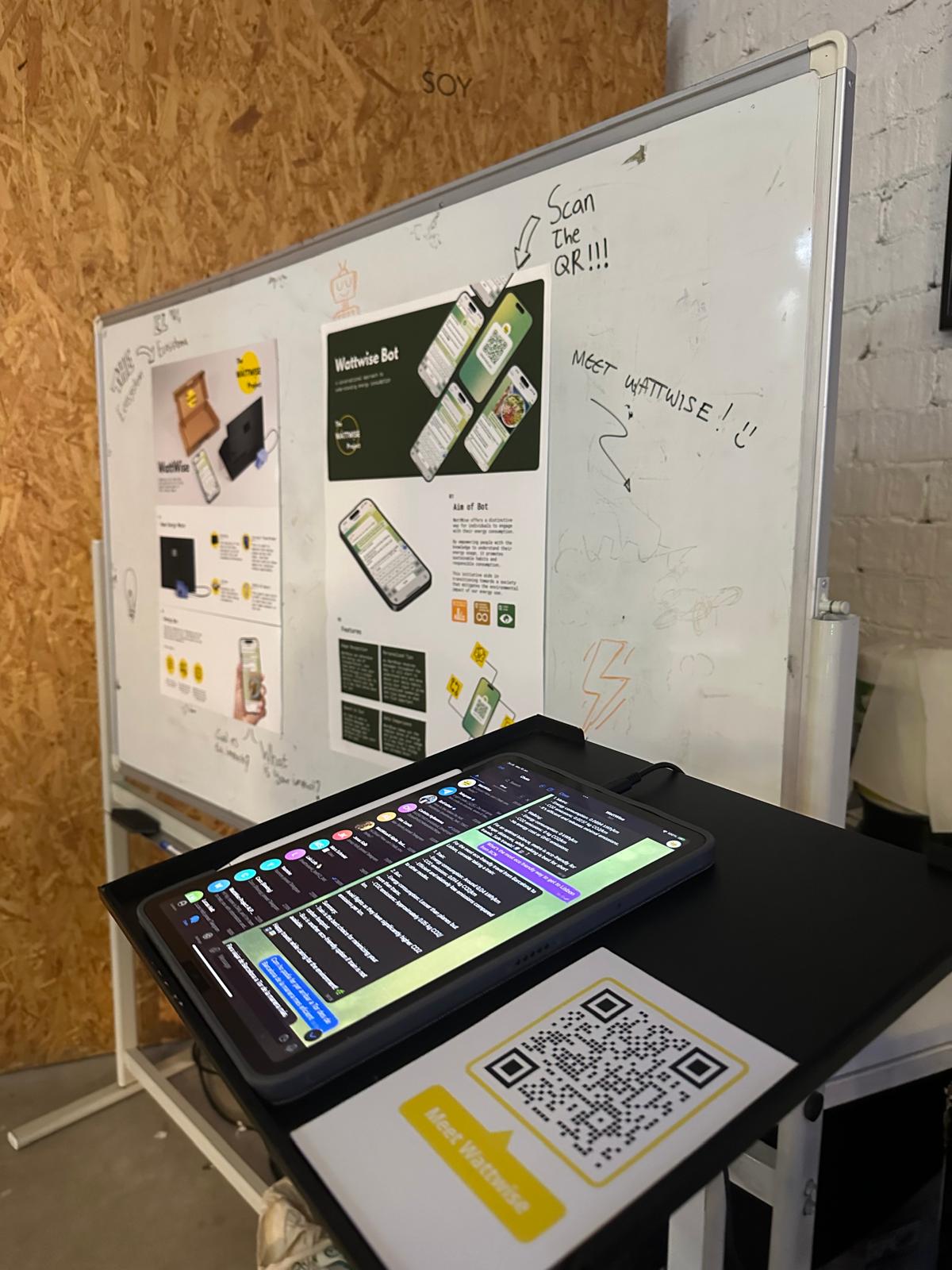
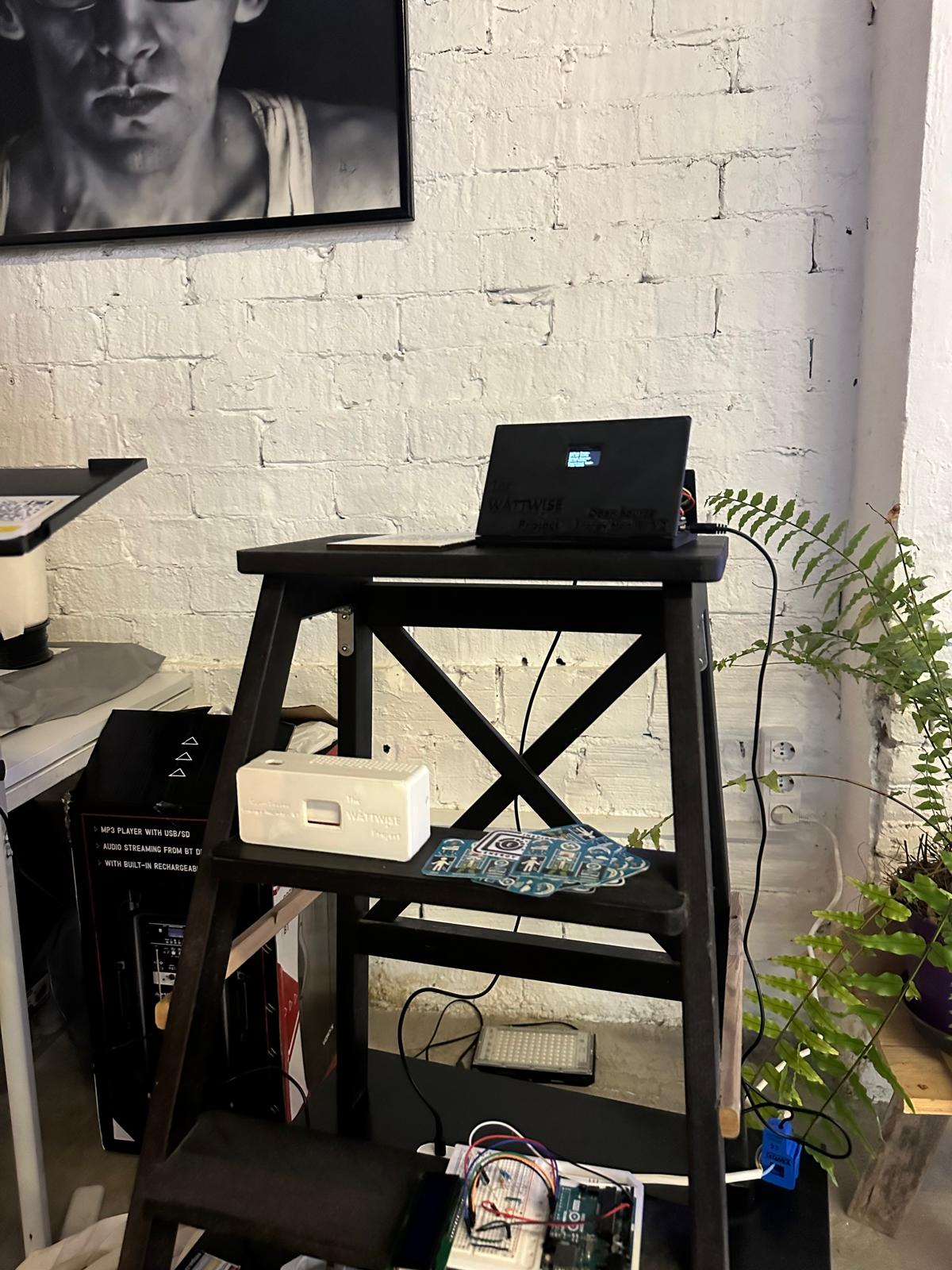

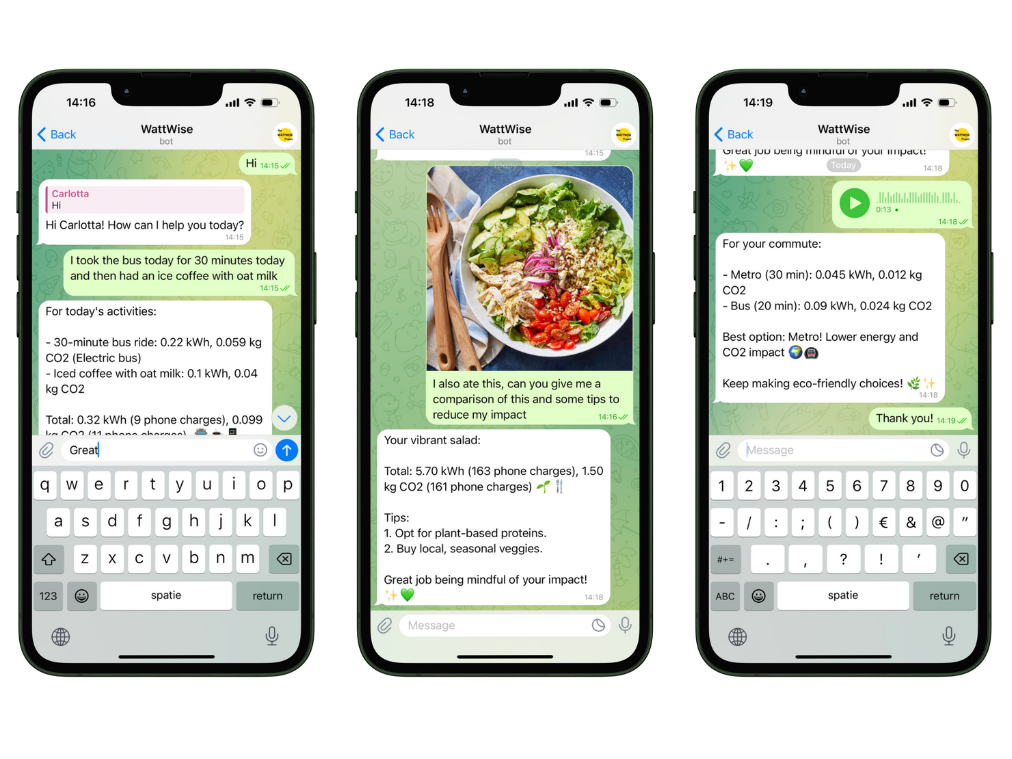
Where Do We Want It to Go Next
Broader Testing: We aim to gather more feedback from a wider audience to refine the tool and ensure its effectiveness across diverse user groups.
Gamification: Exploring gamification strategies to increase long-term engagement and make energy tracking more enjoyable.
Business Applications: Considering a shift towards lifecycle assessment tools for designers, providing a valuable resource for sustainable product development.
Scalability: Transitioning to a free model like Llama to make WattWise more accessible and adaptable to different geographic and cultural contexts.
In conclusion, WattWise has been an incredible journey of exploration and innovation in energy consumption and sustainability. By integrating AI and creating user-friendly tools, we can significantly impact daily energy habits and contribute to a more sustainable future. Our ongoing efforts will focus on expanding and refining WattWise to ensure it remains relevant, effective, and accessible for a diverse user base.
Free AI Website Maker